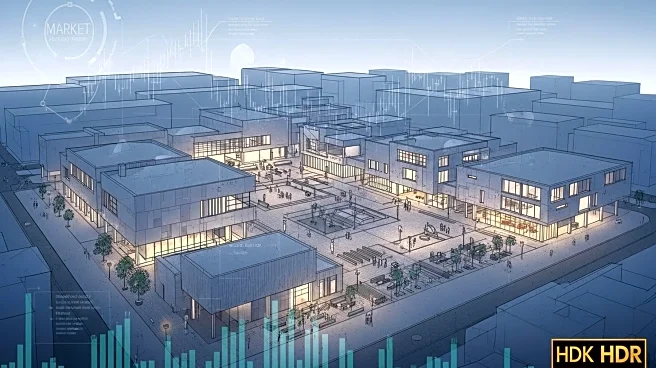What's Happening?
The City of Wolverhampton Council has decided to alter several planned features of the Bilston Market redevelopment project due to budgetary constraints. Originally estimated at £6.4 million, the project's cost has risen to £8.9 million, prompting the council to remove certain elements such as a 12-meter beacon, benches, planters, solar panels, and new signage. The market's outdoor stalls were relocated last October to facilitate construction, which is now delayed until June 2026. The council has also reduced rent for traders by 25% for over ten months to support them during the ongoing work. Despite these changes, the council remains committed to delivering a high-quality market for Bilston.
Why It's Important?
The modifications to the Bilston Market project highlight the challenges local governments face in managing large-scale infrastructure projects within budget. The delay and increased costs could impact local traders who rely on the market for their livelihood, potentially affecting the local economy. The council's decision to cut rent and invest in events to attract footfall demonstrates efforts to mitigate negative impacts on traders. This situation underscores the importance of thorough planning and contingency measures in public projects, especially when unexpected conditions arise.
What's Next?
The council plans to continue with the revised construction schedule, aiming for completion by June 2026. Traders and local residents will likely monitor the progress closely, as the market is a significant community hub. The council's commitment to developing the best market in the West Midlands suggests ongoing efforts to ensure quality despite budgetary adjustments. Future decisions may involve additional support measures for traders if delays persist or further budgetary issues arise.
Beyond the Headlines
The Bilston Market redevelopment reflects broader issues in public infrastructure projects, such as the need for adaptive planning and financial oversight. The council's experience may serve as a case study for other municipalities facing similar challenges. Additionally, the emphasis on creating a high-quality market could influence regional development strategies, prioritizing community-centric projects that enhance local economies.










